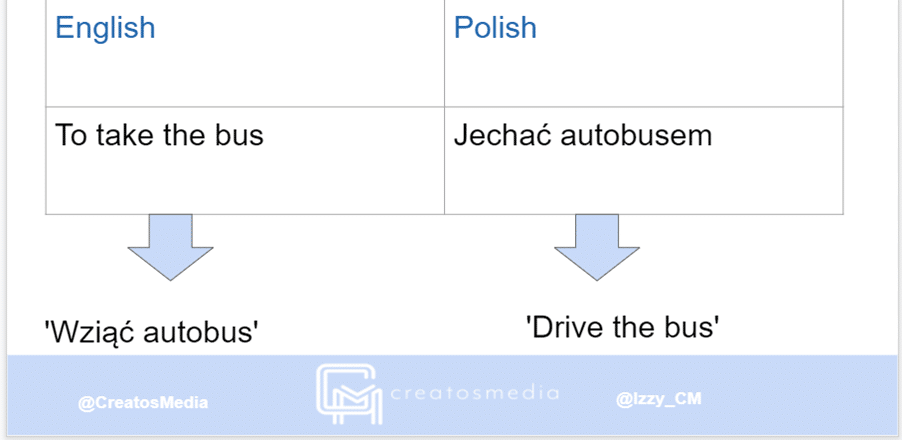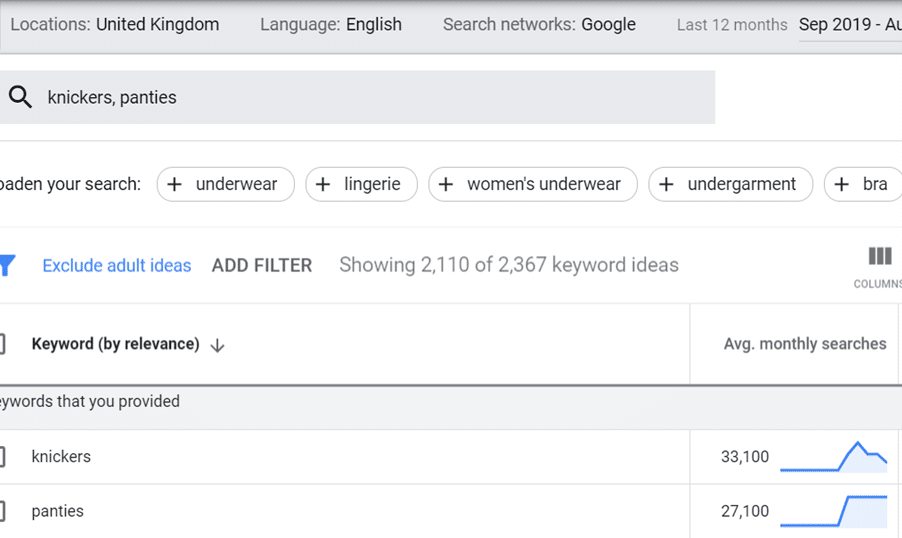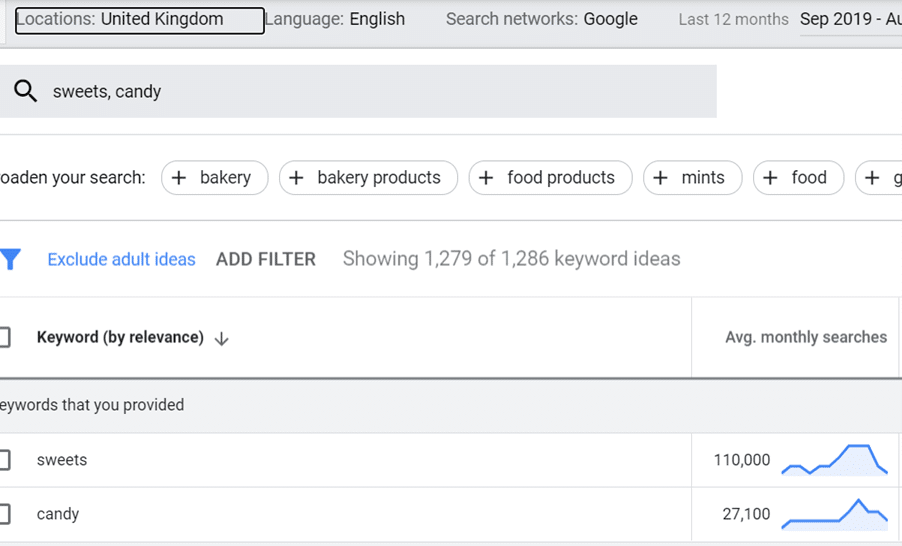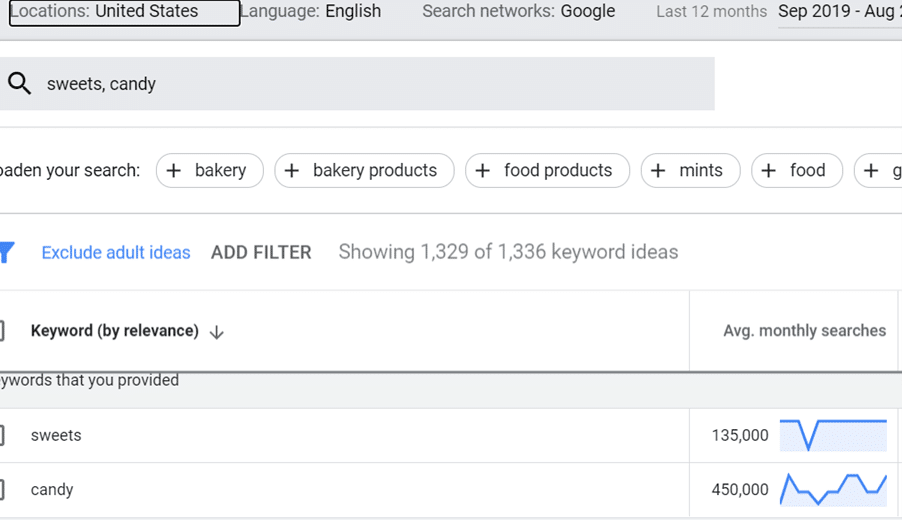I recently delivered a presentation on this subject for Semrush Poland webinar – it is in Polish but if anyone would like to watch the link is here.
I thought it will be beneficial to share the process as it is not as straightforward as we believe.
How to do international keyword research?
1) Understand the intention of the searcher – this is vital, you have to know exactly what the person is searching for and what they want to achieve by performing this search.
2) You have to understand the buying cycle, and where in this buying cycle your potential customer is. Do they only do research? Or do they know they want ‘green Nike trainers size 8’
3) Check what keywords your competitors are ranking for and choose ones that would be suitable for you – do not go for everything as this will not always be the best choice.
4) Use your favourite tools for ideas like Google Keyword Tool, Aherfs, Semrush, UbberSuggest etc.
5) Collate all the data in one place and choose your priorities.
6) Once you have your keyword research in place, write your content so that it provides the best answer to the question and do not forget your keywords.
It is pretty easy right?
Why do we differentiate between international keyword research and ‘normal keyword research’? .
Because you will need to do all of that in a different language.
Can I translate my existing list of keywords?
The short answer is no.
Here is why:

Google actually does get that one right – but this is my favourite example – imagine you are not using Google translate just translating word by word – ‘jechac’ in polish language means drive and ‘autobus’ is a bus so the outcome is you are actually the driver of the bus.
Take in polish is ‘wziac’ but we do not use it exactly the same way as you use it in English language, it simply means pick up something and take it – so what do we end up here with ? You picked up the bus and went somewhere 😉
Now I know both languages so even if I used google translate I would see this is wrong – but if we do not know the language how do we know?
Structure and Culture
Each language is different. It may have a different structure than your native language but also people using this language may search in a different way. There was an interesting research by Innovation Language Management which revealed that in Western countries we use nouns to perform our searches whereas in Middle East people prefer to use verbs. There may be 100’s of other similar aspects.
Content is about communication with your visitors, so keyword research is a tool in this communication, and to communicate with people effectively you need to be familiar with a culture of this country. Ask yourself questions like:
How do they talk to each other?
What words do they use?
How do they like and don’t like to be approached and talked to?
Another interesting research conducted by Webcertain revealed differences in search results in different countries, which suggests that intent varies country by country.
Here are type of search results user would get when searching for ‘chair’ in China and in USA.

In the US 60% results were about style and shape of chairs, whereas in China this type of search results accounted only for 20% .
Having said that, in my opinion – and not only mine, many other search experts in the field agree – you will need a native speaker to consult with on international projects.
Alphabet
Yes, this is also something to consider. The Latin alphabet is not the only one people use. Did you know that there are languages/alphabets where you read right to left? Which does make a difference when copying and pasting for example. Although I did know that, Ihadn’t considered copying and pasting issues before Jimi from Bootcamp Media mentioned it!
The same language – different country
Here it does get easier, but you still need to consider differences. You may not need someone from the USA to work with you all the time but it would be good to dive into differences between American and British English and possibly, consult the outcome with a native to be sure.
In this case you won’t say anything like driving the bus, because you will know it is wrong – but you may miss on some great opportunities because in Britain we say things differently.
Here is an example from lingerie industry:
United Kingdom searches for ‘knickers’ and ‘panties’

United States searches for ‘knickers’ and ‘panties’

The search volume does not change for ‘knickers’ but for ‘panties’ we have UK: 27,100 vs US: 201,000 – it is a massive difference.
Here is another example from food industry:
Search in United Kingdom for ‘sweets’ and ‘candy’

Search in United States for ‘sweets’ and ‘candy’

This time there is a difference for both keywords, but for ‘candy’ the difference is massive. UK 27,100 vs US:450,000
You wouldn’t always go for the one with the highest search volume, but if you are strong enough to do so, forgetting about those subtle differences within English may cost you losing a lot of revenue.
Where do people search?
In Google right? The majority of times – yes. But whereinternational SEO is considered, you have to remember that there are places where Google is not the most popular search engine, for example:

Baidu is the most popular search engine in China, 70% of all searches are performed in Baidu, so if you are considering working with a client from China you will need Baidu specialist or a comprehensive training to start with.

Yandex processes 51% of searches in Russia, Google on the other hand processes 45% – pretty close huh? But you still wouldn’t like to lose this 51% would you? This is why, when considering working on Russian website – Yandex specialist is a staff addon to consider or/and educate yourself in.
Conclusion
To conclude, when international SEO is considered it is always a good idea to either employ or consult a native speaker, or a very high-level bilingual specialist, depending on a size of the project. I am not saying it is impossible for a British company to work on a website in the US or Australia – it is the same language I know, and we can do our research. I am saying in this case it is always a good idea to speak with someone who knows the US or Australian culture and can direct us to the right words – otherwise we could be losing revenue and not even know about it. What I am also saying is – it is close to impossible to work on a website in completely different language – even Google translate makes mistakes and it is very unfair to the client to charge them for Google Translate.


